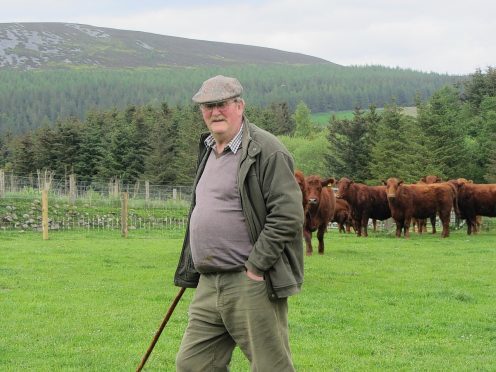The Government has come under fire over the impact its renewable energy policy is having on livestock farmers.
The Scottish Tenant Farmers Association (STFA) has called for a moratorium in granting permission to build any more large-scale renewable energy plants because it says they have put distillery by-product sources for cattle and sheep at risk and could lead to environmental issues down the line.
According to Glenlivet farmer Alastair Nairn, environment spokesman for STFA and a member of the Scottish Government’s Agriculture and Climate Change Stakeholder Group (ACCSG), new anaerobic digesters and biomass plants are decimating traditional feed sources for livestock farmers.
He said draff had doubled in price and was in short supply while dark grains – a staple ingredient of most compound feeds – now had to be hauled from the central belt.
“And there are doubts as to how long this source will be available,” he said.
Mr Nairn added that it wasn’t just farmers who were missing a home-grown protein source.
“This is now setting alarm bells ringing amongst the animal feed industry. The issue was discussed at a meeting of the ACCSG where our concerns were shared by representatives of the feed industry,” he said.
“The growth of anaerobic digestion (AD) plants has created its own problems with a vast quantity of digestate [waste from the AD process] now having to be spread on grassland. As yet, farmers have no real idea of the long-term implications of spreading this waste and how it will affect the chemical composition of soils, trace elements and available nutrients.”
Mr Nairn added that it made no sense to haul timber all over Scotland to encourage draff to burn in biomass plants.
He said: “The government must also take account of the wider concerns of the feed industry who now face the added cost of importing protein to add to feed rations while the tax payer is funding valuable home grown protein feed to be converted into renewable energy.”
STFA has welcomed the government’s commitment to investigate the value of renewable energy production from distillery by-products in terms of its contribution to mitigation of climate change and the long-term impact it will have on livestock production and the rural economy.
